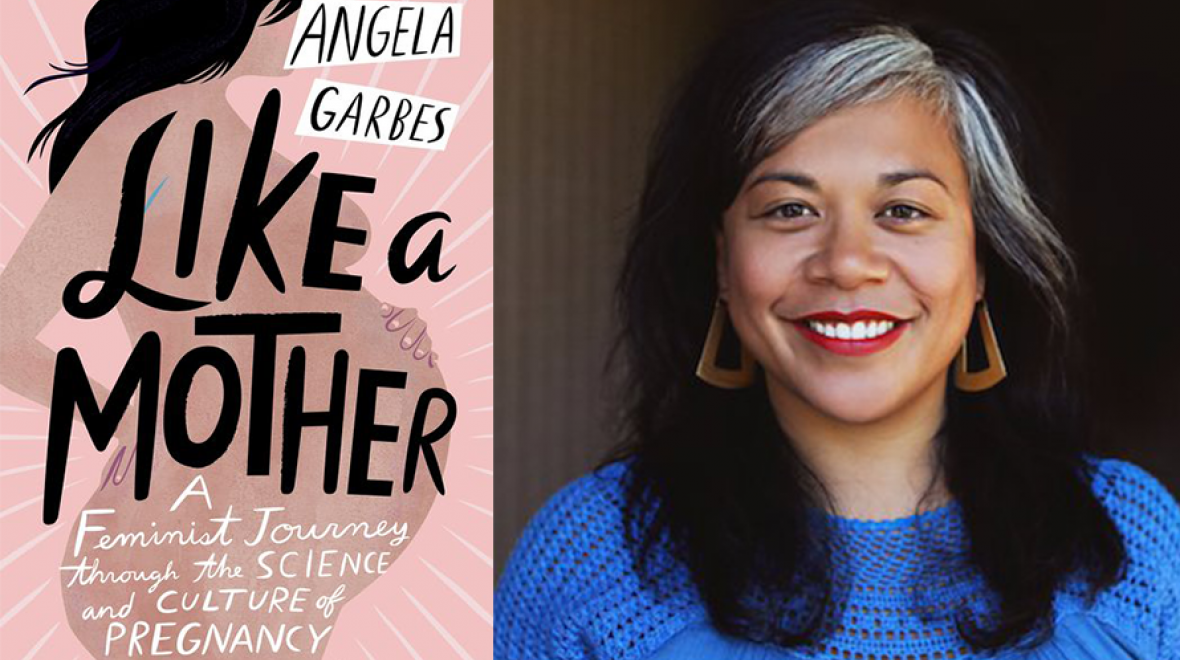
Photo:
The new book from Angela Garbes (right) debuts May 29. Photo courtesy Angela Garbes
With wit and candor, Angela Garbes debut book "Like a Mother: A Feminist Journey Through the Science and Culture of Pregnancy" delivers a deeply stirring, unapologetically honest and long overdue look into the experience of pregnancy and the arcane science behind it.
This empowering read and the potent research inside it is the pro-mom manifesto that at last gives pregnant women a seat at the table and affirms what mothers have known all along: that we know best.
"Like A Mother" is available May 29. You can catch Angela, a Seattle-based writer and mother of two, at Town Hall Seattle in conversation with Lindy West on June 13 or Third Place Books Seward Park on July 18.
Q: "Like A Mother" supposes that more widespread knowledge of the science of pregnancy, which your book notes has been limited until very recently to studies done by white men and kept within medical communities rather than the women they serve, would contribute to a more feminist, inclusive culture of pregnancy leading to better outcomes for both mother and child. What is one step individuals can take to begin to create a shift in this paradigm?
Ask questions!
Even if you are fortunate enough to have good health care and a provider that you trust, it can sometimes be intimidating to ask questions. But knowledge is critical to making informed decisions about what is best for you (which may not be best for somebody else!), and making informed decisions is key to feeling confident and good throughout your pregnancy and early motherhood.
This book is the direct result of me asking questions about breast milk that I felt weren't being adequately addressed by health care providers but that I knew were important. So ask questions — and insist on answers!
Q: I had so many “Holy shit, no way!” moments as I read your book — especially the chapter about the placenta, which I learned is not only an incredible organ for mother and baby during pregnancy but may also hold the keys to important discoveries about cancer, organ transplants, the long-term health of adults and more. What is the most surprising or shocking thing you uncovered during your research for this book?
There are so many things! I can't pick just one, so here are two.
The most shocking (in a horrifying sense) thing I learned was that it wasn't until 1993 that Congress passed a law requiring that women and minorities be included in clinical trials funded by the federal government. It shows just how much women's health has been underserved and undervalued.
The most shocking (in a beautiful sense) thing is about microchimerism — specifically that the cells of our children, whether we carry them to term or not, can live on in our bodies for a lifetime. For people who have lost pregnancies or children, I think this is especially significant.
Q: You wrote "Like A Mother" after the birth of your first child, and recently you gave birth to your second — congratulations, by the way! — how did what you learned writing this book shape or inform your experience being pregnant for the second time? What was different for you after having such a wealth of pertinent information fresh in your mind and what do you hope other mother’s will gain from reading?
I trusted myself so much more this time around. My second pregnancy was more difficult than my first, but I worried a lot less. I hope that what other mothers take away from my book is that while, yes, the baby is important, so are you. You — your health and your happiness — are never any less important than the baby. I hope they know that it is okay to trust yourself; you may not be a doctor, but when it comes to your own body and experience, you are an expert.
Q: Your book explores research done by Penny Simkin and Kristen Swanson; Simkin, the internationally renowned founder of DONA International, and Swanson, whose work is much less known, have both devoted their careers to improving care for pregnant women, which you assert is a “quietly radical act that dramatically affects both the obstetrical and the psychological outcomes of birth.” While access to doulas is on the rise, what suggestion would you make in regard to care for women who do not have the privilege of affording a doula?
Find someone you trust, a friend or family member, and ask them if they would be willing to support you during your birth. They don't need necessarily need training; they just need be committed to caring for and listening to you. The evidence is clear that mothers who have continuous labor support have better health outcomes and, more important, are happier with their births. Everyone deserves that, regardless of what they can afford.
Q: Lastly, this book places you at the forefront of this urgently important national conversation. What’s next for you?
Honestly, I don't know! I have a newborn, so taking care of her is my top priority. But having a new baby and a new book about pregnancy and motherhood at the same time has only strengthened my belief that we need to do more to support women and new parents. So I'll continue to talk about this stuff as long as people will listen.











